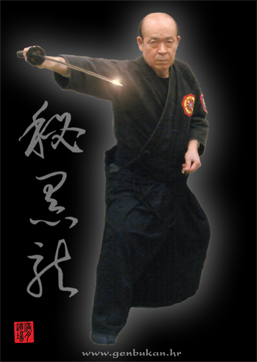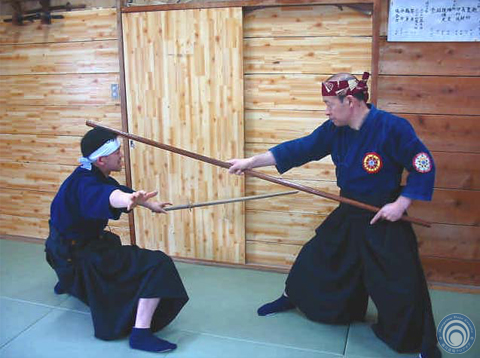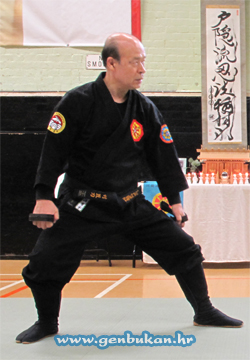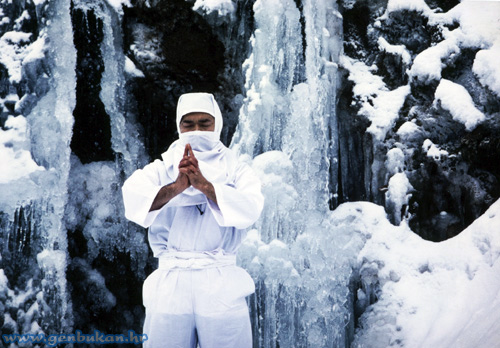
 The Name "Genbukan"
The Name "Genbukan"
The Name "Ninpo Bugei"
 Genbukan - Ryu ha
Genbukan - Ryu ha
The basics of Genbukan Ninpo Bugei have evolved out of various schools including:
• Togakure Ryu
• Kumogakure-Ryu
• Kukishin-Ryu
• Gyokko-Ryu
• Koto-Ryu
• Gikan-Ryu
• Shinden-Fudo-Ryu
• Takagi-Yoshin-Ryu
• Asayama-Ichiden-Ryu
• Yoshin-Muso-Ryu
• Tatara-Shinden-Ryu
• Iga Ryu
• Tenshin-Ryu
• Daito-Ryu
• Yagyu-Shingan-Ryu
• Mugen Shinto Ryu
• Kijin Chosui Ryu
• Tenshin Hyoho Kukishin Ryu Genbukan - Ninpo and Ninjutsu
Genbukan - Ninpo and Ninjutsu
The character po, which implies natural law, is used rather than do (i.e. judo, kendo, aikido, etc). Referring to our art as Ninpo rather than Ninjutsu stresses training which is concerned with the internal development of the individual's character along with the technical skills of martial training. It isn't enough just to know techniques, it is where your heart and spirit are as a person that is important. For this reason, Ninpo stresses philosophic and spiritual training in conjunction with the physical training. This refinement of one's spirit is known in Japanese as seishinteki kyoyo.

Ninpo is concerned with the defense of the whole self, and recognizes that defense against a life-threat is dealt with by the spirit as much as with physical technique.
Genbukan - Syllabus
Titles in GWNBF/KJJR
Master titles in GWNBF / KJJR (hierarchical order): 1. Soke – Grandmaster, 2. Shihan Cho – Main master, 3. Hanshi – True master, 4. Shihan – Master, 5. Kyoshi – Teaching master, 6. Renshi – Training master.
Organizational Titles in GWNBF / KJJR (hierarchical order): 1. Soshi – Founder, 2. Kancho – Head of organization, 3. Kokusai Shidoin – International counselor instructor, 4. Shibu-Cho – Regional Director, 5. Dai Dojo-Cho – Large School Chief (over 100 students), 6. Chief Dojo-Cho – Main School Chief that supervise other Dojos, 7. Dojo-Cho – School Chief, 8. KJJR Group Leader.
For more information in English language go to www.genbukan.org




